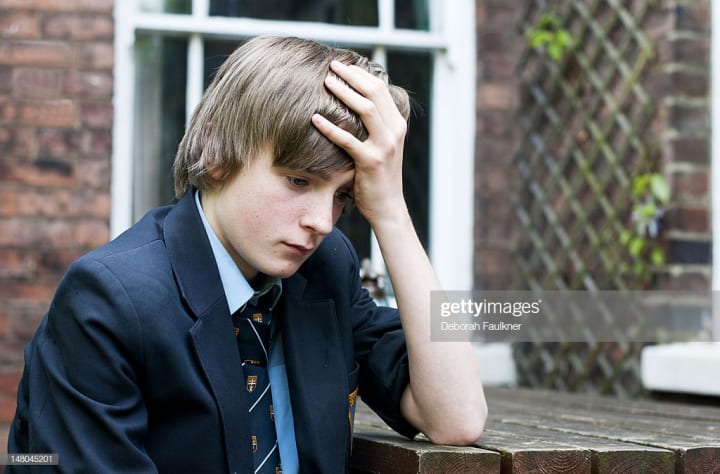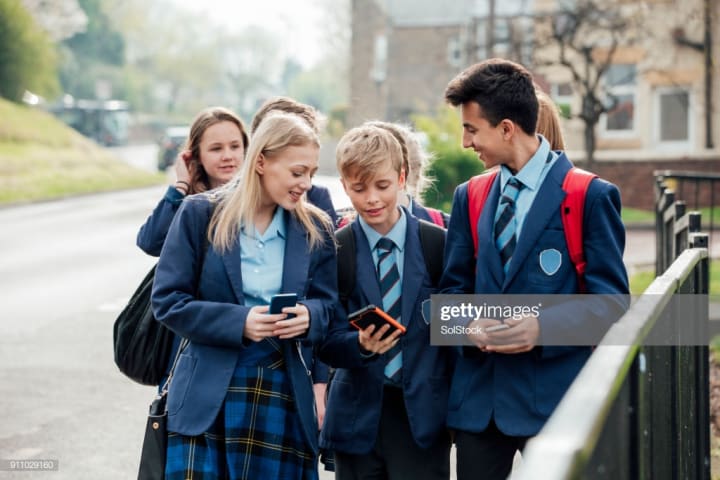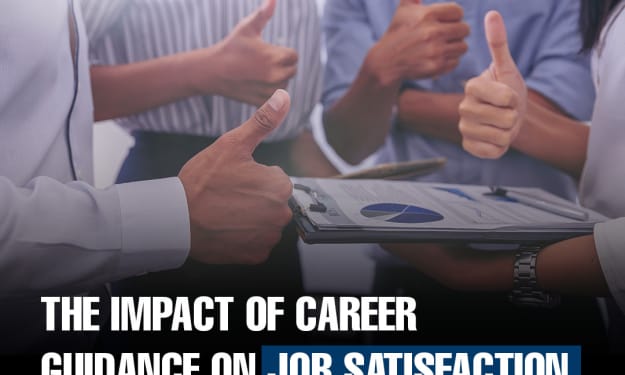Changes to Sex & Health Education in British Schools - My Thoughts
The law is changing in the United Kingdom regarding sex education—and, in my view, it's about time.

On Monday, it was announced that the Department for Education was changing the law regarding Sex Education lessons in Britain. Not only does the government want to make these lessons compulsory, but they also want to broaden their scope: covering a range of things such as, but not limited to, LGBTQ+ issues, online safety, and mental health. And, speaking as someone who has been through the education system (I'm now 21, and have been through school, college, and university) in Britain, I'm delighted that, finally, measures are being taken to update a curriculum that not only was out of date, but, frankly, taken as a bit of a joke.

Picture Copyright to Getty Images
I remember being a kid, and, believe me, I wouldn't want to go back through my childhood again. Now, how much of this was down to issues beyond my control, I'm not sure, but I struggled with friendships, loneliness, and anxiety. I was always more comfortable with a book than with other people. And it wasn't until I went to university that I really understood what that was, and why I was like that. Some people could, and would, pin blame for my lack of knowledge on my parents, but, truth to tell, they didn't really understand it either. My parents were schooled during the late 1960s/early 1970s—an even more conservative time than the early 00s for the British education system. They had even less education in this field than I did. And when I was born, there was no help, no understanding for the issues I had. I'm sure that has changed now, but when I was born, there was little help, or even information, for my mum and dad. No, if there's anything I "blame" (although I find blame itself to be an unhelpful construct), it's the narrow scope of the British education system. So, I find the news that its scope will be expanded to be a welcome one. It's long been in need of updating: what with the expansion of social media and other issues that didn't exist even ten years ago.

Picture Copyright to Getty Images
Now, of course, there has already been an outpouring of negativity towards these new measures (when isn't there these days?). People have criticised the measures, saying that it isn't the place for schools to be teaching the material, that it's up to parents to do it. Others have expressed the "concern" that, regarding LGBTQ+ education, it will become an indoctrination factory, turning their children gay or whatever. I find these criticisms not only ill-informed, but also part of the backwards attitude that has led us into this mess. Look at teenagers nowadays—they are so vacuously obsessed with social media that it's bordering on the dangerous. We need some kind of education to stop instances like what happened to Molly Russell becoming more commonplace. And, if you're about to use the counter that "parents should be teaching their kids this," do you know how many parents actually understand the complexities of social media? Because most of the ones that I know probably don't have a clue. Don't forget—social media is still relatively new: Twitter is only just ten years old, and Instagram is barely even eight. This new form of interaction is still brand new: the people who've made it don't really understand it, so what hope have parents got? Having a proper curriculum, put in place with the help of psychologists and child development specialists, isn't perfect, but it's better than the current system.

Picture Copyright to Getty Images
I mentioned at the top of this article that I found, in my experience, this kind of education was seen as a bit of a joke. When I was in secondary school, this was grouped under the umbrella lesson PSHE. And if you think that sounds as boring and uninspiring as it was, then guess what? You'd be right. My overriding memory of these lessons was simply trying to avoid doing as much work as possible, and chatting with a group of girls at the back. And I don't think the teacher took it any more seriously than we all did. The whole thing was a joke, quite honestly, and I took nothing away from the experience. I feel that, by enforcing a tighter curriculum, by introducing a clearer focus upon what the Department for Education wants these lessons to achieve, then maybe we will start to get somewhere. I just hope that teachers don't decide to shirk away from difficult or sensitive issues, but rather embrace them wholeheartedly. I think it's important for kids to understand the reality of the world around them, and that life can be tough and cruel. We certainly must make sure that it is age-appropriate, and I hope that this aspect will be strictly controlled, but children shouldn't be wrapped in cotton wool. They aren't stupid, and deserve to understand complex things like depression, transgender issues, and female genital mutilation. For if they don't learn about it as kids—when will they be ready to learn about it? When they're 18? Because that argument works so well for alcohol, doesn't it? I've never met any people who've had an alcoholic drink before they were 18, I don't think.

Picture Copyright to Getty Images
I'm delighted to say that this new policy is a vast step-forward in terms of educating children in Britain. Of course, we have to see that policy put into practice yet, but, if the Department for Education ensure the proper funding is in place for schools to be able to carry out the necessary training and recruitment, and they don't back down in the face of pressure from parents and campaign groups, then this will be a massive improvement upon the current system. Reform like this has been a long time coming, and I'm hopeful that this will go someway to addressing Britain's burgeoning problem with young people.
About the Creator
Joseph A. Morrison
26. Fan of Doctor Who, Blake's 7, The Prisoner and more old-fashioned TV. Reviewer, wannabe writer and general twit.
Enjoyed the story? Support the Creator.
Subscribe for free to receive all their stories in your feed. You could also pledge your support or give them a one-off tip, letting them know you appreciate their work.






Comments
There are no comments for this story
Be the first to respond and start the conversation.